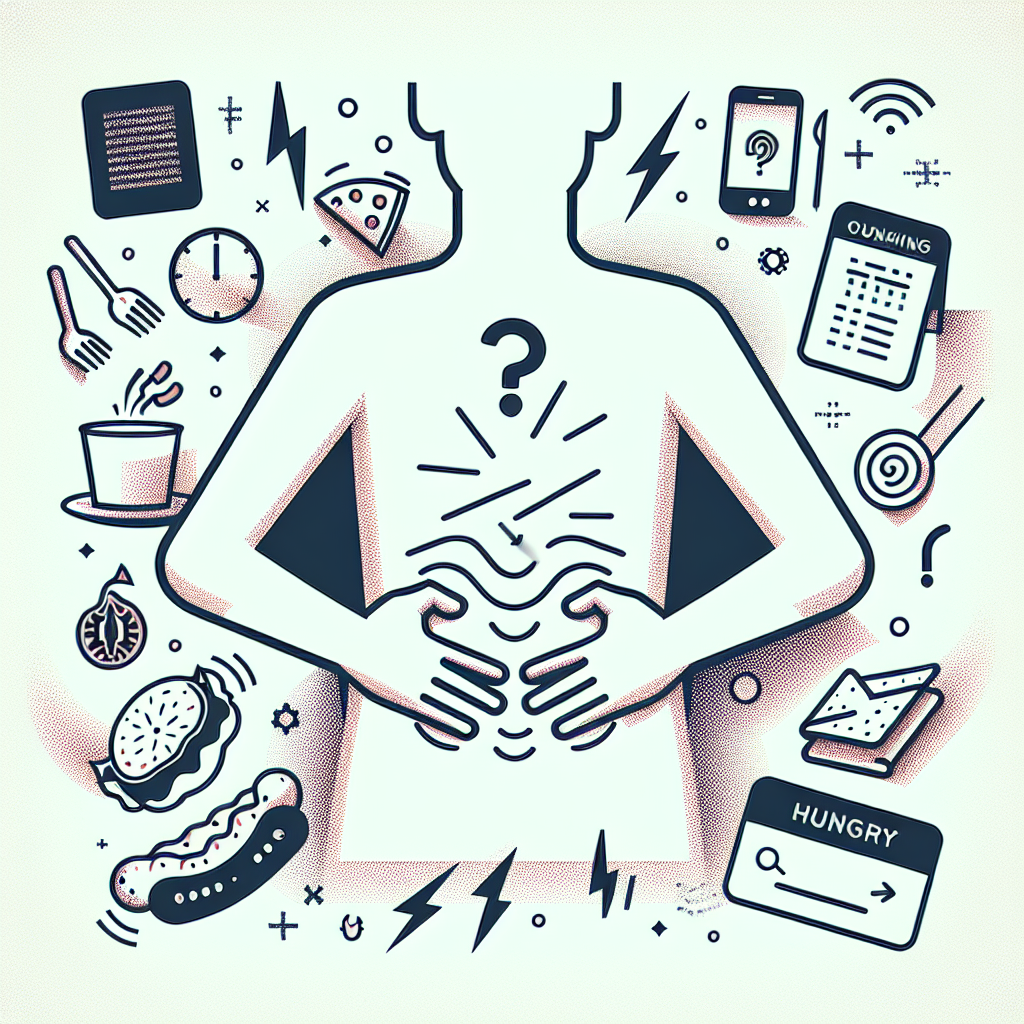Many people wonder why their hands tremble, their heart races, or they suddenly feel lightheaded between meals. If you’ve ever typed into a search bar why do i get shaky when hungry, you’re not alone — this common experience has several possible explanations, from low blood sugar to stress hormones and simple dehydration.
Shaky when hungry: common causes
When you feel shaky when hungry, it can be unsettling. The body relies on a steady supply of glucose to fuel the brain and muscles; when levels fall, symptoms like trembling and sweating can follow. But low blood sugar isn’t the only reason — adrenaline from stress, missed sleep, or even skipping meals while caffeinated can lead to shaking from not eating.
Low blood sugar (hypoglycemia)
Hypoglycemia is a top cause of shakes from hunger and the classic “sugar shakes.” As glucose drops, the body releases adrenaline and other stress hormones that produce trembling and sweating. You may also feel dizzy when hungry or experience feeling weak and shaky and nauseous. If episodes are frequent or severe, it’s reasonable to check blood sugar and consult a clinician; a helpful overview on low blood sugar is available from MedlinePlus for more clinical background.
MedlinePlus overview of hypoglycemia (low blood sugar)
Adrenal response and anxiety
Even when blood sugar is normal, stress and anxiety can trigger trembling. The fight-or-flight response causes sudden adrenaline surges that may leave you sweaty shaky, trembling and sweating, or with sudden sweating shaking and feeling faint. This is why some people report shaking when hungry but not diabetic — the sensation can be driven by hormones rather than glucose alone.
Other contributing factors
Several additional issues can mimic or worsen shakes from hunger:
- Dehydration or low blood pressure, which can make you dizzy when hungry.
- Excessive caffeine or nicotine intake, increasing jitteriness between meals.
- Delayed gastric emptying, illness, or medication side effects causing feeling weak and shaky and nauseous.
- Reactive hypoglycemia — low blood sugar after high-carbohydrate meals — leading to shaking from not eating later.
What to do in the moment
If you notice shaking when hungry, try a small, balanced snack: a mix of protein, healthy fat, and complex carbs helps stabilize glucose without causing a rapid spike and fall. Simple options include a handful of nuts with fruit, yogurt, or whole-grain toast with nut butter. If you feel dizzy when hungry or are experiencing sudden sweating shaking and feeling faint, sit down, breathe slowly, and have a snack. If symptoms persist or are severe (severe confusion, fainting, or loss of consciousness), seek immediate medical help.
For long-term management, consider regular meal timing, adequate hydration, and moderating stimulants. If screens and constant notifications cause skipped meals or stress-related hunger, a structured break can help — see digital detox tips to reclaim focus and reduce anxiety for ideas to reset routines and reduce anxiety-driven hunger patterns.
Prevention and when to see a doctor
Frequent shaking, sugar shakes, or episodes where you feel shaky when hungry but not diabetic should prompt a medical evaluation. Tests may include blood glucose monitoring, basic labs, and a review of medications and diet. If trembling is accompanied by chest pain, severe shortness of breath, fainting, or confusion, seek emergency care.
- Eat balanced snacks every 3–4 hours to prevent drops in blood sugar.
- Stay hydrated and limit excessive caffeine to reduce jitteriness.
- Manage stress and sleep — chronic stress raises baseline adrenaline, causing trembling and sweating.
- Track symptoms (timing, food, sleep, and stress) to share with your healthcare provider.
FAQ
Q: Can hunger make me feel dizzy and nauseous?
A: Yes — low blood sugar and dehydration can cause you to feel dizzy when hungry and even feeling weak and shaky and nauseous. Eating a small, balanced snack usually helps.
Q: I’m shaky when hungry but not diabetic — should I worry?
A: Not necessarily, but it’s worth checking. Shaking when hungry but not diabetic can be due to adrenaline, reactive hypoglycemia, or lifestyle factors. If episodes are frequent, consult your clinician for evaluation.
Q: Are “sweaty shaky” episodes the same as fainting spells?
A: They can feel similar, as trembling and sweating often precede lightheadedness. However, sudden sweating shaking and feeling faint that leads to collapse needs urgent assessment to rule out cardiac or neurological causes.






